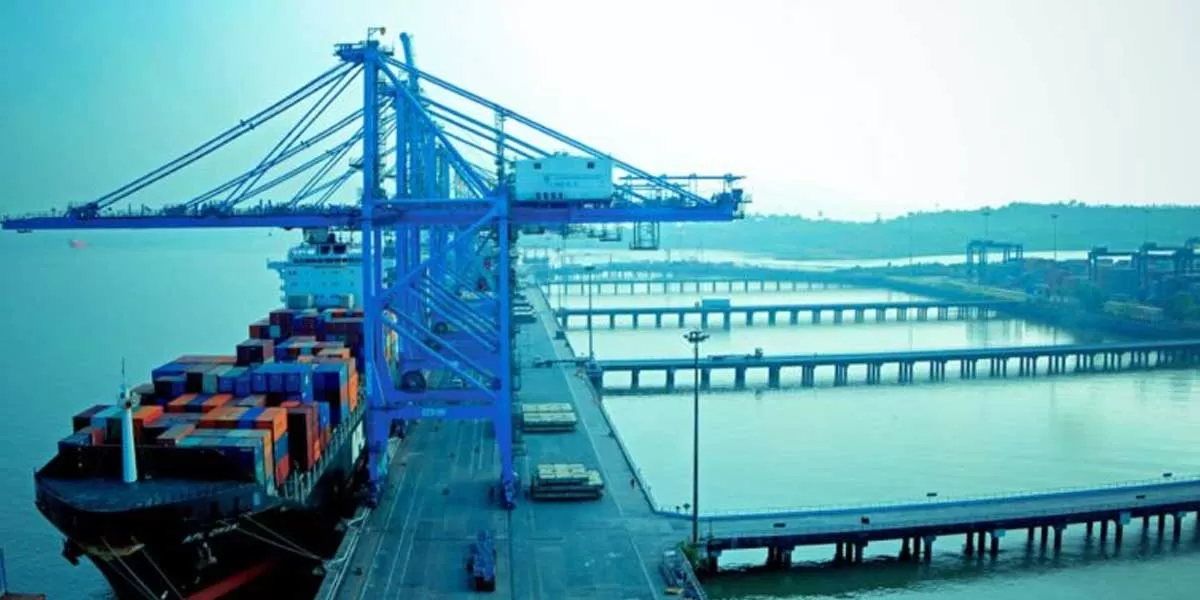Adani Ports and Special Economic Zone (APSEZ) has signed a crucial concession agreement for developing and operating a multipurpose cargo terminal at Deendayal Port in Gujarat. This strategic agreement grants APSEZ the right to develop the terminal for handling multipurpose cargo, marking another significant milestone in Adani Ports' rapid expansion in India's port sector. The project is expected to enhance the port's cargo handling capabilities and boost trade, aligning with the government's initiative to improve maritime infrastructure.
Key Details:
Concession Agreement: The agreement allows APSEZ to develop, operate, and maintain the terminal at Deendayal Port for a concession period of 30 years. This long-term agreement will enable Adani Ports to make necessary investments in infrastructure and technology to efficiently handle multipurpose cargo, including containers, dry bulk, and liquid cargo.
Deendayal Port’s Strategic Importance: Deendayal Port, formerly known as Kandla Port, is one of the busiest ports in India. It handles a substantial portion of the country’s import-export trade. With Adani Ports' involvement, the new multipurpose terminal will help decongest the port and streamline cargo operations, thereby enhancing its overall efficiency.
Multipurpose Cargo Terminal: The terminal will be designed to handle a wide variety of cargo, including containers, break bulk, and bulk commodities like coal, fertilisers, and other industrial goods. This flexibility is key to addressing the growing demand for diversified cargo handling at Indian ports, which is critical for supporting industries such as manufacturing, agriculture, and energy.
Investment and Development: Adani Ports is expected to invest significantly in the terminal’s infrastructure, including modern cargo handling equipment, warehousing, and storage facilities. The terminal will be developed using state-of-the-art technology to ensure seamless cargo movement and improve turnaround times for ships. This will not only improve efficiency but also lower logistics costs for businesses that rely on the port for their import-export activities.
Economic Impact: The development of the multipurpose terminal at Deendayal Port is expected to have a positive economic impact on the region. The project will create jobs, both during the construction phase and in port operations, once the terminal is functional. Additionally, the improved cargo handling capabilities will attract more trade to the region, further boosting local industries and the overall economy.
Adani Ports’ Expansion: The signing of this agreement is part of Adani Ports' broader strategy to expand its footprint across India's port sector. With this development, APSEZ continues to strengthen its position as the largest private port operator in the country. The company has been investing in ports and terminals across India, focusing on both greenfield and brownfield projects to enhance the nation's maritime infrastructure.
Sustainability and Environmental Considerations: Adani Ports is also placing emphasis on sustainability in the development of the terminal. The company plans to implement environmentally friendly practices such as reducing emissions, conserving water, and managing waste efficiently. These measures are aligned with the broader goals of sustainable port development, ensuring that the project contributes to both economic growth and environmental protection.
Future Prospects: The Deendayal terminal project is expected to bolster India’s maritime trade significantly. With improved infrastructure, faster cargo handling, and reduced congestion, the terminal will enhance the country’s global competitiveness. In the long term, the project will contribute to India's efforts to become a logistics hub, supporting the government's vision for an Atmanirbhar Bharat (self-reliant India).
Conclusion:
The concession agreement between Adani Ports and Deendayal Port marks a significant step forward in strengthening India’s maritime infrastructure. By developing a multipurpose terminal, APSEZ will help boost cargo handling efficiency and trade, while supporting economic growth in the region. The project reflects Adani Ports' continued commitment to expanding its port operations and contributing to India’s logistics and trade network.


















